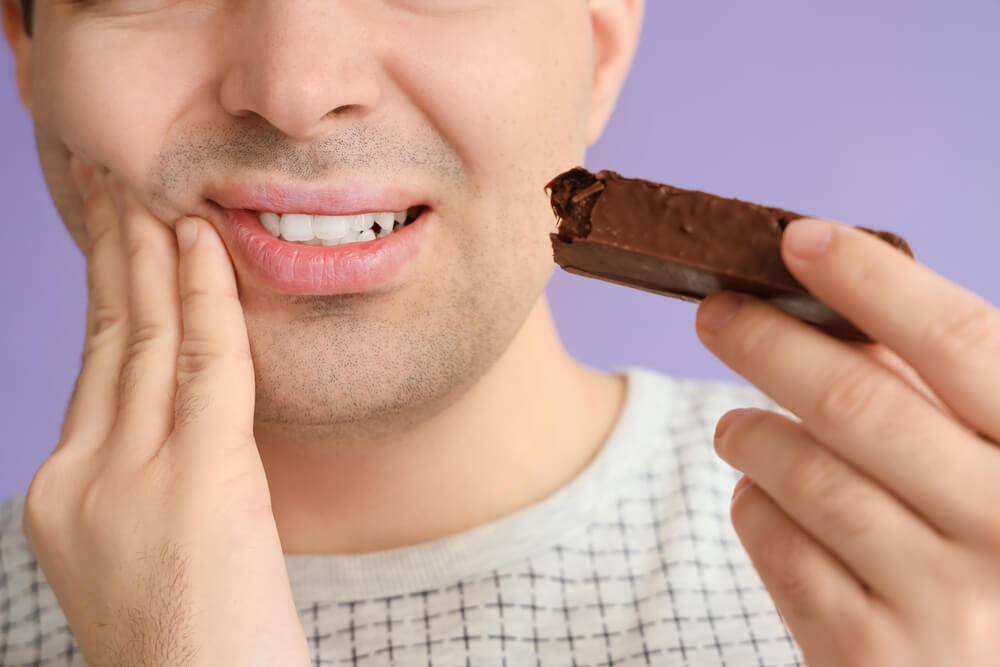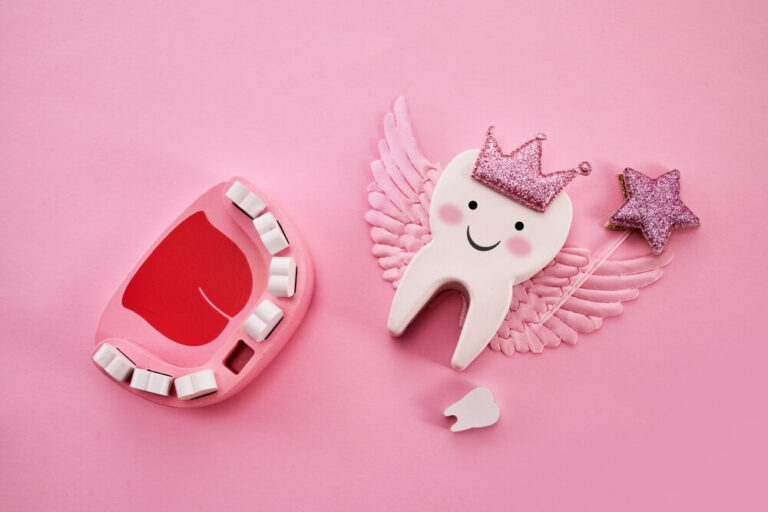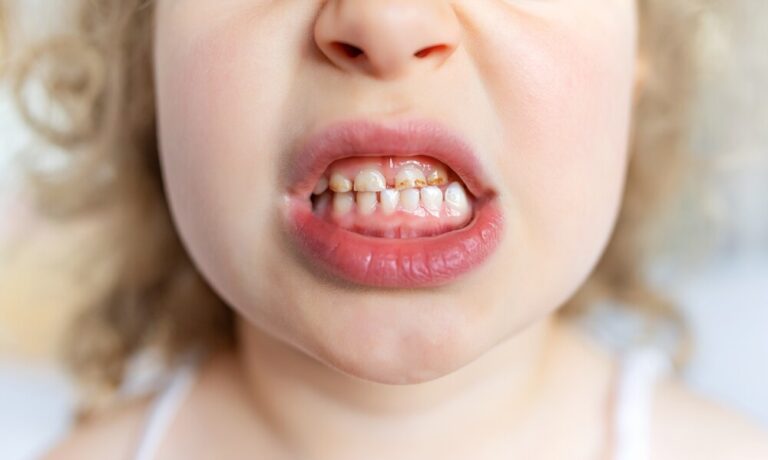Have you ever wondered why your teeth hurt when you indulge in that delicious chocolate bar? Many people experience tooth sensitivity when biting into sweet chocolate is no exception. To understand why this happens. If you are feeling a black spot on your teeth, don’t worry we suggest how to remove black spots on your teeth from your place.
Why does chocolate hurt my teeth?
let’s look closer at your teeth. Your teeth are covered in a protective layer called enamel, which shields the sensitive inner layers from outside stimuli, when you eat chocolate, the sugars and acids interact with the bacteria in your mouth.
Forming plaque
This plaque buildup can weaken the enamel over time, making your teeth more susceptible to pain and sensitivity. But that’s not the only reason. Chocolate, especially dark chocolate, contains tannins and acids that can also erode enamel and expose the Denton layer beneath which houses tiny nerve endings. When these nerve endings are exposed, they can send signals of pain to your brain, resulting in that uncomfortable sensation you feel when enjoying your favorite treat.
What can you do to prevent this?
Maintaining good oral hygiene habits such as brushing twice a day, flossing regularly, and visiting your dentist for checkups can help keep your enamel strong and protect your teeth from sensitivity. Next time you reach for that chocolate bar. Remember to take care of your teeth so you can enjoy it without the pain.
Is chocolate bad for our teeth?
Chocolates contain sugar, that is, it contains glucose. So chocolates whether it is dark chocolate or white chocolate. It is bad for the teeth because it contains glucose which has very much affinity for the bacteria. So it initiates the development of the cavity. That’s why it is bad for health.
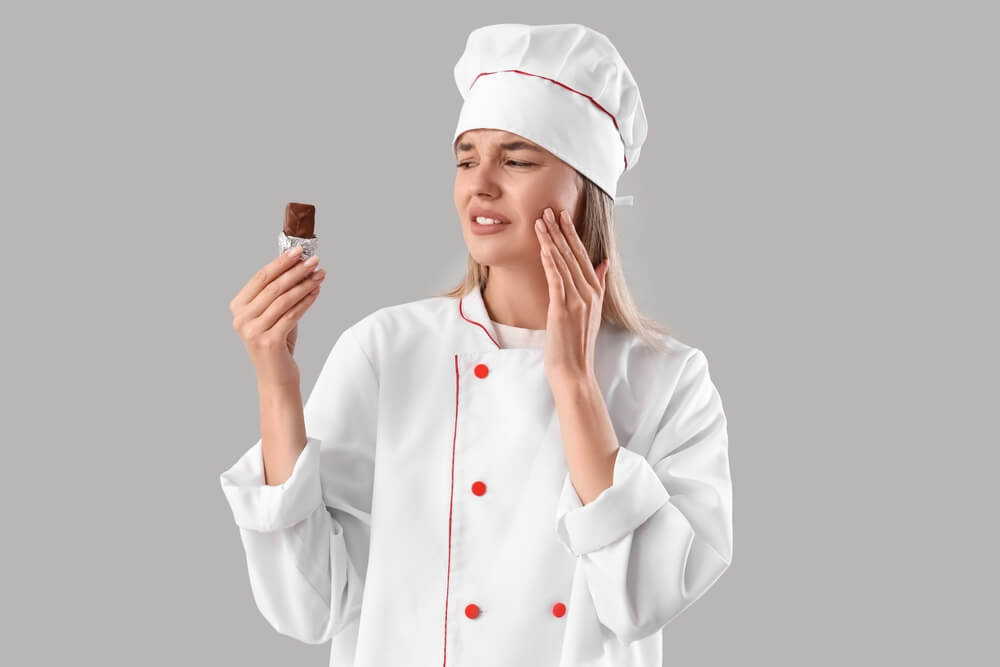
Eight Ways to Keep Your Teeth Healthy
Brushing
Most dentists recommend you brush at least twice a day, but brushing after every meal is even better, whether electric or manual. Select a toothbrush that allows you to easily clean all surfaces. Dentists also encourage replacing toothbrushes every three to four months. Picking a toothbrush make sure your toothbrush fits your mouth. Using a fit toothbrush makes it easier to achieve clean teeth.
Some people find that electric toothbrushes make it easier to spend. The dentist recommended two minutes of teeth cleaning.
Picking the toothpaste
Pick a toothpaste that can help shield your mouth from tooth sensitivity and help fight cavities. Tartar plaque gingivitis stains and bad breath.
Flossing
Flossing is as important as brushing your teeth. Flossing improves the health of the teeth by removing food particles stuck amid the teeth and reduces the daily buildup of plaque and bacteria on the teeth. If you have trouble sliding the floss between your teeth, try wax floss or wide floss.
Take up to 18 inches of floss, so you have a clean piece of floss to use on each tooth in the cleaning teeth process. The floss is then curved into a C shape as you slide it up and down along the side of each tooth. Make sure to floss every side, front, and back of both the left and right of the upper and lower teeth.
Rinsing mouthwash
Rinsing mouthwash will boost your teeth-cleaning routine with additional germ-killing and plaque-preventing properties. It leaves your mouth germ-free and clean. There are both alcoholic and non-alcoholic types of mouthwash available in the market. You can choose according to your preference, don’t forget the tongue. People often forget to clean their tongue after toothbrush. Tongue scraping is equally vital for maintaining the health of your teeth. Neglecting the tongue can lead to oral diseases.
Gently brush the tongue
Once you are done with the teeth, drink more water. We know that water is the best beverage for overall health and the same dose for oral health. Thoroughly wash your mouth with a sip after eating. This helps get rid of any sticky and acidic residue.
Avoid sugary foods and drinks
Plaque is made by the combination of molecules of sugar with saliva and bacteria that could be present in your mouth. Plaque breaks down the enamel of your teeth, which causes cavities. These cavities can be sometimes painful. Make sure to avoid food and drinks with high sugar content for healthy teeth.
Brush twice a day
There are plenty of reasons to brush your teeth twice a day. It prevents bad breath, and gets rid of damage, causing bacteria and plaque. Remove stains and much more. Follow the routine of brushing your tongue, flossing your teeth, and mouthwash for healthy and clean teeth.
Visit your dentist twice a year
Your everyday habits are crucial to your overall oral health. At a minimum, one must visit their dentist at least twice a year for cleanings and checkups. Not only can a dentist remove calculus and look for cavities, but they will also be able to spot potential issues and offer treatment solutions.
How can I eat chocolates without damaging my teeth?
Five things to do after eating chocolate drink plenty of water because it helps to wash the sugar off of the teeth and rebalance the pH in the mouth. Chew some xylitol gum it’s a natural non-nutritive sweetener that fights cavities and tooth decay.
Floss right after eating chocolate is recommended because the longer chocolate sticks to your teeth, the more bacteria can cause damage. Rinse or gargle to dilute the sugar concentration in your mouth. Brush your teeth right after eating the chocolate to immediately stop the cavity formation process.

Why Are My Teeth Sensitive When Sweets Touch Them?
When you develop a tooth or teeth that are sensitive to sweets, it is because somehow the sugar is getting access to a nerve in your tooth. The only way this can happen is if the protective enamel on your tooth has been damaged. Although the enamel on your teeth is hard, there are bacteria in your mouth that will produce acid when you eat or drink sweets.
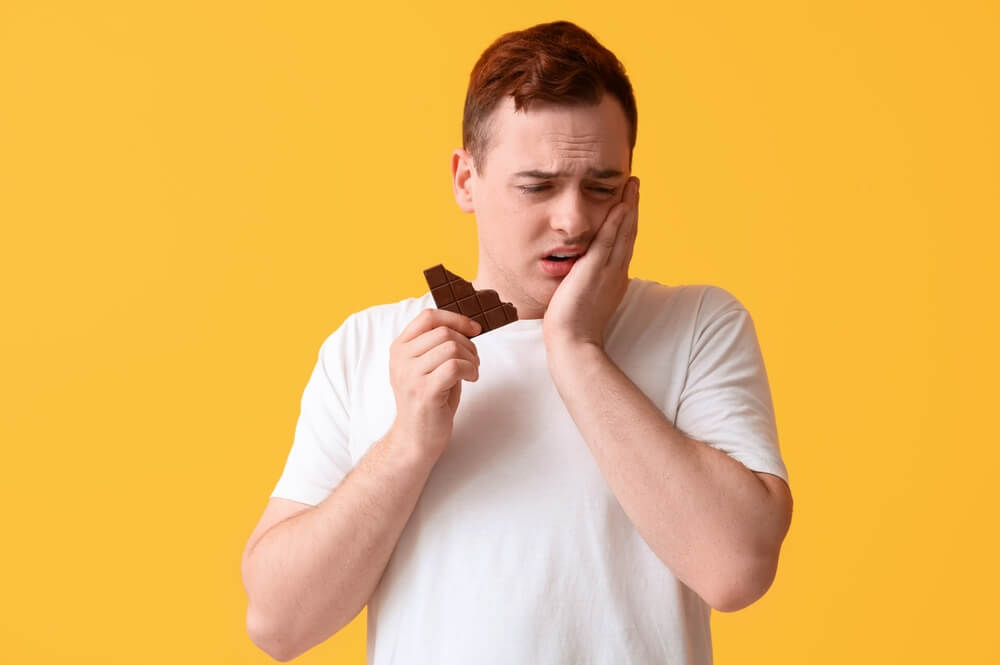
If you eat sweets or sugar-laden drinks all day, you are exposing the enamel of your teeth to a lot of acid all day long. Most sodas and fruit juices also have acid in them that damages the enamel even more.
After a while, your enamel develops pits and holes in it from the acid. This lets the sugar come into direct contact with the nerves in your teeth and you feel pain. Unfortunately, you cannot regrow tooth enamel.
Once damaged, it must be repaired by dental procedures. There are, however, several dental procedures that can be used to end your sensitivity to sweets and other things. You can also get teeth filled, have them sealed with a fluoride varnish, have teeth resurfaced with dental veneers, or have a new crown or dental implant put in. Preventing sensitive teeth is a better option. If it is not too late. By brushing and flossing regularly, you can keep the destructive acid off of your teeth. Rinsing your mouth with water after eating sweets will also help.
Conclusion
In the summary, we completely discussed why chocolate hurt my teeth. Their causes what can you do to prevent this? Or Is chocolate bad for our teeth? Also discussed about the eight ways to keep healthier and smiley. How can I eat chocolates without damaging my teeth? We also discussed Why Are My Teeth Sensitive When Sweets Touch Them? So keep in mind to stay healthy and eat healthier food to improve your daily digestion.

